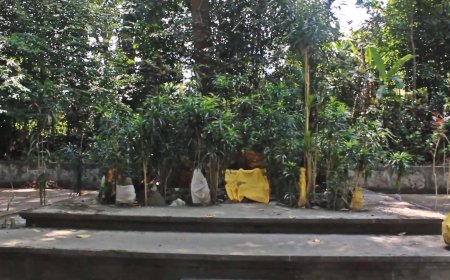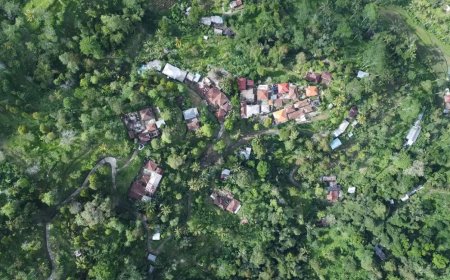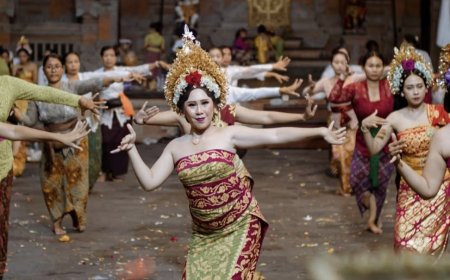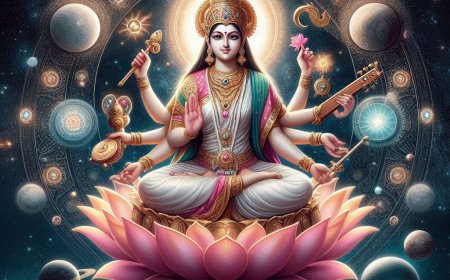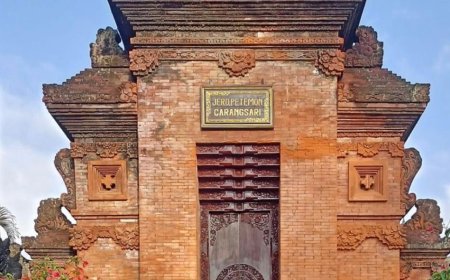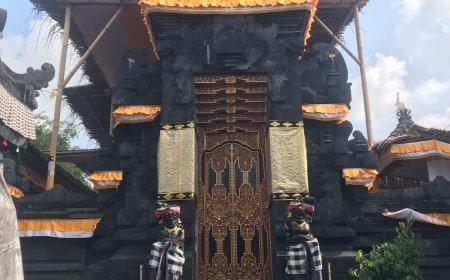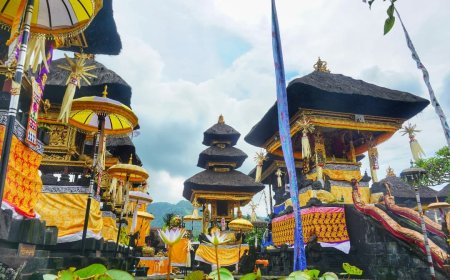Pura Pasek Gelgel Pegatepan: Pillar of Ancestral Worship in the Pasek Gelgel Family Tradition
Located in Pegatepan Village, Klungkung, Pura Dadia Pasek Gelgel Pegatepan is a sacred site that combines the beauty of traditional Balinese architecture with profound spiritual values. Established in honor of the Pasek family ancestors, this temple serves not only as a place of worship but also as a historical witness to the development of Balinese culture and Hinduism on the Island of the Gods.
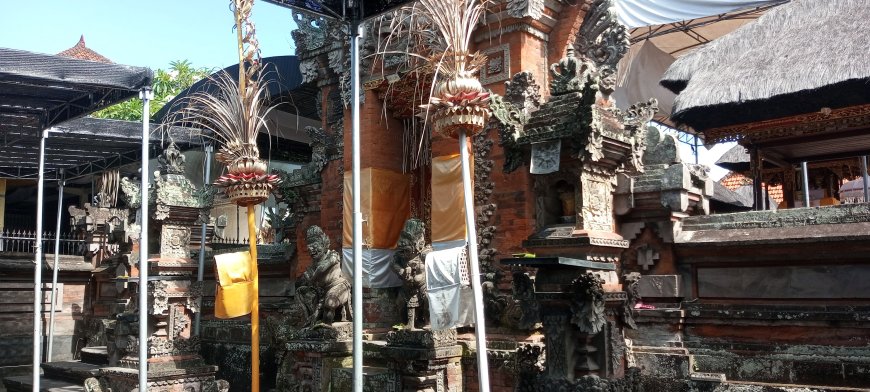
Pura Dadia Pasek Gelgel Pegatepan is one of the most important family temples (pura dadia) in Bali, especially for the descendants of the Pasek family originating from Gelgel, Klungkung. This temple has a close historical connection with the glory days of the Gelgel kingdom, which was a center of power in Bali before the Klungkung kingdom era. "Pasek" refers to a family group (kasta) in Bali with a long-standing history in the island's social and religious structure.
History of Pura Dadia Pasek Gelgel Pegatepan
The history of Pura Dadia Pasek Gelgel Pegatepan is tightly linked to the peak of Gelgel’s reign in Bali and the significant role of the Pasek family in Bali's social and religious structure. The establishment of this temple is intertwined with the long history of the Pasek family, whose descendants are believed to come from Mpu Gede Pasek, a figure who arrived in Bali after the fall of the Majapahit Empire in the 14th century.
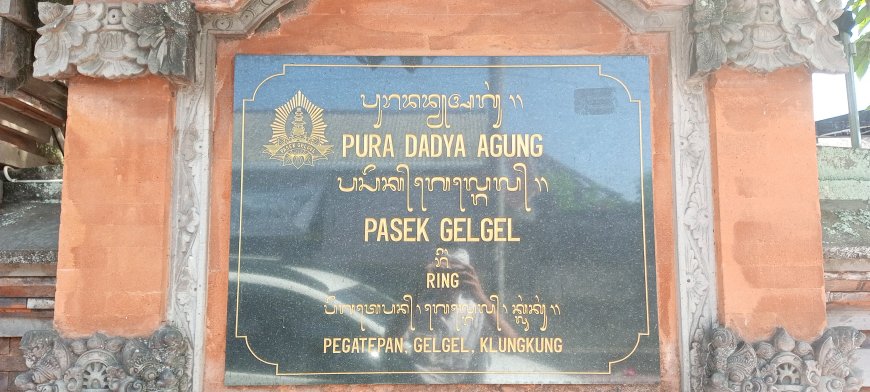
During the transition after Majapahit’s collapse, many influential figures from Java came to Bali, including Mpu Gede Pasek, who played a key role in spreading Hinduism and helping to establish a new governance structure. The Pasek family subsequently gained a respected position in Bali, particularly during the Gelgel kingdom. Established in the 15th century and lasting until the 17th century, the Gelgel kingdom was Bali's power center under the Dalem dynasty. The Pasek family became integral to the kingdom, participating in governance, customs, and preserving social and religious order.
As a tribute to their ancestors who played a significant role in Bali's development, the Pasek descendants established the Pura Dadia in Pegatepan, Klungkung, close to Gelgel’s center of power. This temple serves as a place for worshiping the ancestral spirits of the Pasek family and as a symbol of reverence and spirituality. The role of this family temple is to maintain a spiritual connection between the living descendants of the Pasek family and their ancestors.
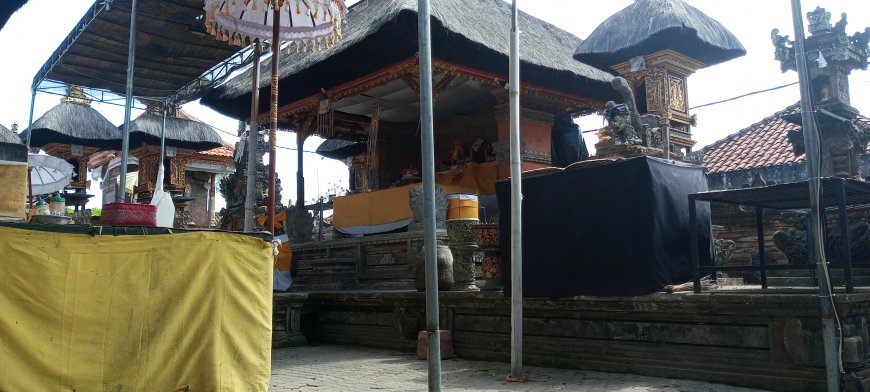
Right Side of the Main Mandala Area of Pura Dadya Agung Pasek Gelgel (Source: Personal Collection)
Pura Dadia Pasek Gelgel Pegatepan also reflects the importance of ancestral heritage within Balinese society, especially among the Pasek family. The establishment of this temple during the Gelgel kingdom's peak highlights the deep bond between the Pasek family and the kingdom, as well as their role in preserving Balinese culture and Hinduism. To this day, the temple remains an important worship site for Pasek descendants across Bali, who gather to perform religious ceremonies and strengthen their spiritual connection with their ancestors.
Architecture and Layout
As a family temple, Pura Dadia Pasek Gelgel Pegatepan follows traditional Balinese architectural rules known as "Asta Kosala Kosali". The temple’s structure includes several sacred buildings (palinggih) dedicated to worshiping ancestral spirits, with the main shrine representing the Pasek ancestors. The temple is typically surrounded by a protective wall called "penyengker", symbolizing the boundary between the physical and spiritual realms.
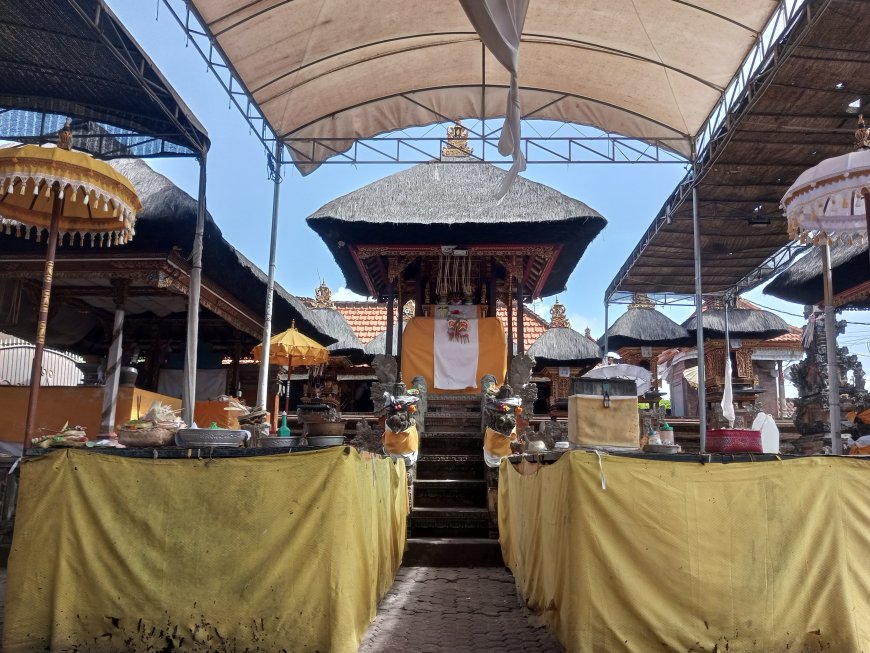
Utama Mandala Area of Pura Dadya Agung Pasek Gelgel (Source: Personal Collection)
The temple's architecture is designed to create a sacred and serene atmosphere for those who come to pray. It also includes a bale or open pavilion for conducting various ceremonies and other religious activities.
Ceremonies and Celebrations
Every temple in Bali has its own calendar of ceremonies that Balinese Hindus observe. Pura Dadia Pasek Gelgel Pegatepan hosts numerous ceremonies throughout the year, including Piodalan, a temple anniversary celebration held every 210 days according to the Balinese calendar. During piodalan, Pasek descendants from various regions usually gather in large numbers to pray together, strengthening family and spiritual bonds.
In addition to piodalan, the temple holds the Nyegara Gunung ceremony, an essential ritual in Balinese tradition to honor ancestors and seek blessings. This ceremony symbolizes the connection between the mountain (representing the spiritual realm) and the sea (representing the physical world), two key elements in Balinese cosmology.
